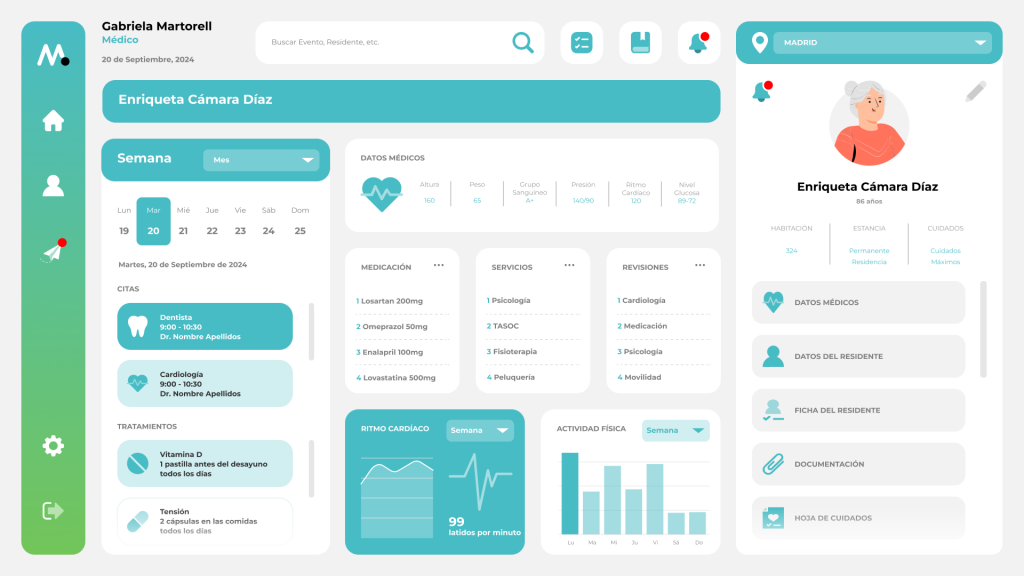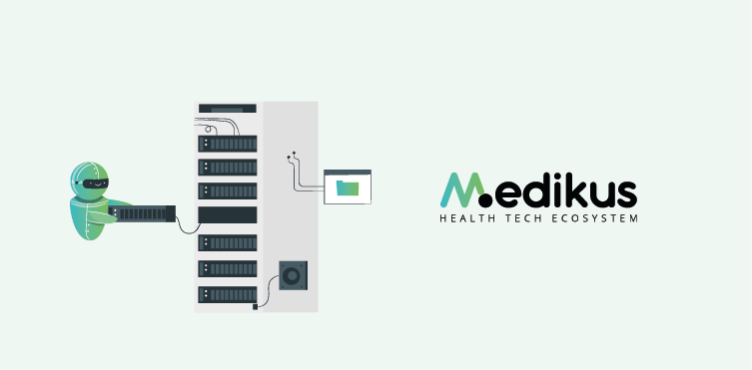Unlocking innovation to enhance quality of life In the present day, technology has taken on a fundamental role in senior care facilities, with numerous innovations seamlessly integrated into the routine of these centers. These enhancements not only benefit the residents but also bring advantages to the professional team. Optimizing tasks expands the available time to provide higher quality care while simultaneously reducing operational costs. The investment in technology has become a distinguishing factor for those centers striving to offer the utmost quality in care. “In the current landscape, the realm of healthcare is undergoing a dynamic era of change, propelled by the increase in life expectancy and novel approaches in caring for older individuals. Technology plays an essential role in effectively embracing this transformation. It not only addresses the needs of residents fluidly but also digitizes intricate operational processes, thereby creating a more efficient and cohesive system.“ Emilio Osete -CEO of Digiu Digital Group To confront this challenge, the World Health Organization (WHO) launched the “Decade of Healthy Ageing” initiative within the framework of the 2030 agenda. This initiative brings together governments, civil society, international organizations, and professionals to collaborate over a decade to enhance the lives and care of elderly individuals, their families, and the communities they reside in. The document underscores the need to promote the development, production, availability, and utilization of assistive and digital technologies and innovations to improve access to quality healthcare and social services. In this context, the digital transformation of senior care facilities finds its place as a central element in the pursuit of healthy aging. More about digitization Though digital transformation has permeated much of the economy, there are still sectors, such as the elderly care sector, that are gradually adopting these technologies due to generational differences. However, this doesn’t hinder the implementation of digitization. On the contrary, this gradual adaptation is a significant step towards modernizing processes and communication in these centers. Digitization entails optimizing operations and procedures as well as improvements in internal and external communication. This, in turn, offers numerous benefits that can be harnessed in this sector and eventually lead to a more efficient and satisfying care environment. The digitization of the elderly care sector demands thorough analysis and appropriate planning to identify the primary elements that can be adapted to this transformation. Exploring diverse digital platforms and tools becomes imperative for successful adaptation. These solutions allow better control of company assets as well as efficient management of daily operations and organizational tasks. In the specific case of senior care facilities, the implementation of a specialized Health Information System (HIS) will enable staff to maintain a daily record of patients and establish more effective routines for each individual. The integration of a communication system among patients, family members, and the facility will enhance security and instill trust in clients. Improved medical practice The enhancement of medical practice stands as another fundamental pillar in this digital revolution. Technology doesn’t merely provide advanced medical devices for more accurate healthcare interventions; it also streamlines attentiveness and facilitates access to electronic medical records. This availability of crucial information empowers professionals to address patients more effectively and securely. Additionally, seamless communication between patient and medical personnel for treatment administration and follow-ups becomes pivotal in enhancing comprehensive medical care. Reduction of medical errors The reduction of medical errors is a constant concern in any healthcare setting. In this regard, digitization offers an effective solution. By eliminating manual management in favor of electronic records, correct medication administration is ensured, and risks associated with manual record-keeping are minimized. Moreover, a culture of safety and precision in procedures is promoted, which is essential in resident care. Decrease in time and costs spent on paperwork The reduction of time and costs dedicated to paper document management is one of the most tangible advantages of digital transformation. Paper-based management is replaced by digital systems that simplify administrative tasks, allowing personnel to focus more on direct resident care. This resource optimization results in a more efficient environment while simultaneously enabling personalized care tailored to residents’ needs. Improved quality of life for patients Enhancing the quality of life for patients is a central objective in elderly care. Digitizing elderly care environments provides numerous benefits in this regard. From entertainment to medical monitoring, digital solutions are designed to improve residents’ experiences. Digital devices enable elderly individuals to access a variety of activities and services, contributing to their overall well-being. In conclusion, the digitization of the elderly care sector presents a valuable opportunity to improve healthcare quality and provide more effective and secure care for elderly individuals. Leveraging the advantages of technology, significant progress can be achieved in management and care, benefiting both professionals and patients and their families. In a constantly evolving world, these digital solutions are paving the way for a brighter and more compassionate future for senior care.






